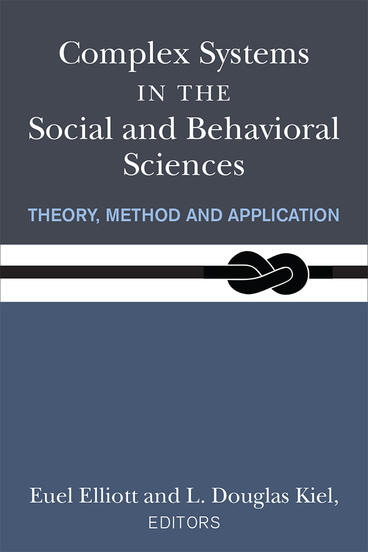Complex Systems in the Social and Behavioral Sciences
Theory, Method and Application
Complexity systems are at the heart of behavior
Description
Complexity Systems in the Social and Behavioral Sciences provides a sophisticated yet accessible account of complexity science or complex systems research. Phenomena in the behavioral, social, and hard sciences all exhibit certain important similarities consistent with complex systems. These include the concept of emergence, sensitivity to initial conditions, and interactions between agents in a system that yield unanticipated, nonlinear outcomes. The topics discussed range from the implications for artificial intelligence and computing to questions about how to model complex systems through agent-based modeling, to complex phenomena exhibited in international relations, and in organizational behavior. This volume will be an invaluable addition for both the general reader and the specialist, offering new insights into this fascinating area of research.
Euel Elliott is Professor of Public Policy and Political Economy, and Political Science at University of Texas at Dallas
L. Douglas Kiel is Professor of Public and Nonprofit Management at University of Texas at Dallas
Reviews
“This edited volume applies complexity science, specifically complex adaptive systems theory, concepts and principles as an intellectual framework in understanding social systems and human behavior. The volume is useful for novice readers as well as experts in the dynamic field of complex adaptive systems.”
—Naim Kapucu, University of Central Florida
- Naim Kapucu
“This remarkable book explores not only the theory of complex systems in reference to the social and behavioral sciences, but also provides detailed explanations of the methods that apply and do not apply to the dynamic context of human interactions, challenging the very organization and conduct of inquiry in the social sciences.”
- Louise K. Comfort
—Louise K. Comfort, University of Pittsburgh
“With many saying social science discoveries will dominate the next two centuries (after two centuries of physics and biology, each), this comprehensive collection provides a timely and modern outlook on what is to come. The prevalence of computational methods is practically useful and the references to computational theory are thought-provoking.”
- Martin Hilbert
—Martin Hilbert, University of California, Davis

